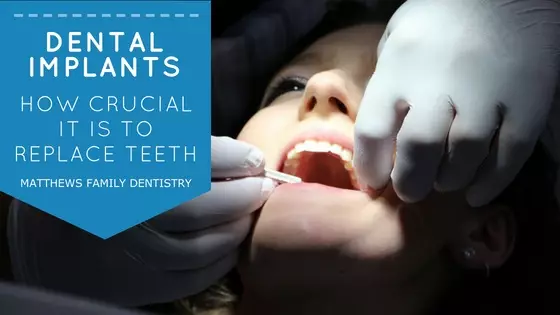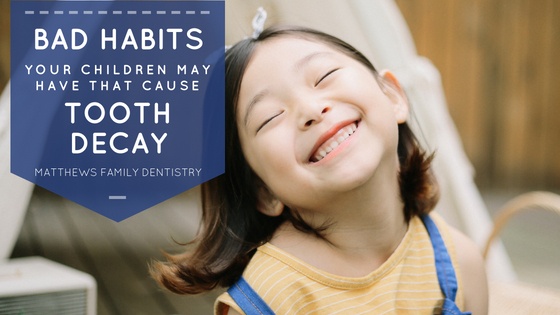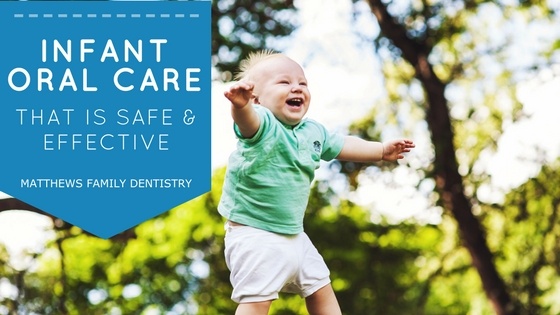
Dental Implants: How Crucial it is to Replace Teeth
May 22, 2018
Childhood Habits that Damage Teeth
June 29, 2018It’s crucial that you have the right information early on when it comes to infant oral care. Even though your child’s first teeth are temporary, they are still susceptible to decay and infection, and mothers can actually transfer damaging bacteria to their infants, according to the American Dental Association’s (ADA) Mouth Healthy site. Knowing the correct approach to oral care for each stage of your baby’s development will ensure you’re providing the best care possible.
Infant Care Is Your Dental Care
Good oral care for your baby starts with your own dental health. Disease-causing bacteria called “streptococcus mutans” can transfer from mothers to infants easily, according to the American Academy of Pediatrics, and can result in infant dental decay. Poor dietary habits can increase bacteria production and the risk of transfer to your infant, so keep an eye on your diet and practice good oral hygiene yourself.
The Centers for Disease Control and Prevention notes that early childhood caries, or dental decay that leads to cavities, is a widespread infectious disease for infants in the U.S. It’s also one of the most avoidable, and taking the right steps at every stage can prevent it and improve oral health.
The Most Effective Care at Every Stage
Follow these four steps to ensure proper oral care for your child:
- Schedule your own dental cleaning and exam in the second trimester of your pregnancy. Basic cleaning and care is safe for your baby, and decreases risk of bacteria transmission and infection. Avoid any cosmetic procedures until after your child is born, and limit or delay emergency procedures, such as extractions, if possible.
- Schedule your baby’s first dental health and oral exam no later than one year of age, or when the first tooth erupts, according to both the ADA and The American Academy of Pediatric Dentistry. The goals of this first visit are:
- Risk assessment: Your pediatrician will relay whether any additional steps must be taken based on the exam.
- Education: Pediatricians and pediatric dentists recommend dental wellness visits every six months for the first five years.
- Referrals: This means choosing a pediatric dentist who will provide comprehensive, consistent care over the next five years.
- In the first year, clean your infant’s gums at least twice a day, in the morning and evening, and after feedings, to prevent bacteria and food buildup. The best technique is to wrap a clean, damp gauze around your clean index finger and gently wipe your baby’s gums.
- When your infant starts teething, brush his or her teeth with products such as Colgate’s fluoride-free My First Colgate™ Toothpaste and Toothbrushes. Look for soft bristle, easy grip brushes for infants and children up to two years old.
What to Avoid
Avoid overexposure to fluoride, whether in toothpaste or through bottled water. You should consult with your dentist or pediatrician for information about fluoride usage with your infant. Don’t let your baby fall asleep nursing or with a bottle in his mouth; this will minimize bacteria development. And don’t share your utensils, drinking straws or cups. Remember your bacteria is transferable and can cause infections.
Putting all these practices into place, from when to start care to what specific steps to take or to avoid, will ensure your newborn has the safest and most effective oral care. That’s great peace of mind for any parent.

